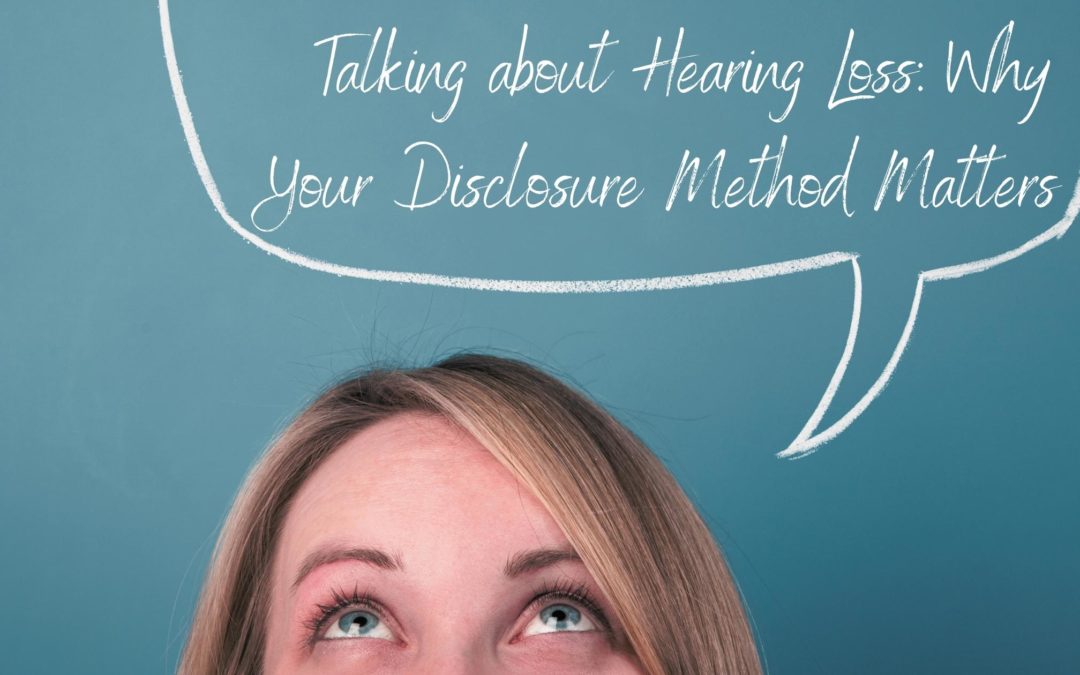Have you noticed some recent changes in your hearing? You might be having a harder time following conversations, or you may have started turning up the volume on the TV. Talking about your hearing loss is just as important as recognizing that you have hearing loss. How you disclose your hearing loss to family and friends matters.
Talking About Hearing Loss
There’s still a stigma around hearing loss. Many people believe that hearing loss is a sign they’re getting old, and so they avoid talking about their hearing loss as much as possible.
The truth is that hearing loss affects people of all ages. Roughly 50 million Americans have hearing loss. This includes seniors, adults, young adults, and even kids.
Talking about hearing loss and being open about your hearing health is one way you can break the stigma around hearing loss, and help others recognize that hearing loss can affect anyone. Talking about hearing loss matters, both for your community and for your overall health.
Disclosing Hearing Loss
A study from Boston, Massachusetts asked over 300 adults how they talk about their hearing loss, and asked them to fill out a survey to find out more about their disclosure strategies.
This study found that there are three main disclosure methods people use when talking about hearing loss. They also discovered that disclosure methods matter! Different disclosure methods were linked to different health outcomes, relationship satisfaction, and overall quality of life.
Non-Disclosure Method
The first disclosure method is the non-disclosure method. Adults using this method don’t talk about their hearing loss. They avoid the topic as much as possible. They may not even accept that they have hearing loss. These adults were more likely to blame others. They might say things like “why are you mumbling” or “please speak up!”
Non-disclosure typically don’t ask for support from their loved ones. They don’t realize they need help hearing, so communication can be a challenge. Non-disclosure ask family and friends to repeat themselves, and everyone gets frustrated when communication breaks down. This communication style can lead to social isolation, loneliness and sadness, and overall worse health outcomes.
Basic Disclosure Method
Some adults with hearing loss are willing to talk about their hearing health in certain circumstances. This group uses the basic disclosure method. Basic disclosure will talk about their hearing loss. Instead of blaming others for speaking too softly, they’ll make comments like “I can’t hear you very well” or “my hearing isn’t so great anymore”. This disclosure is usually made to close family and friends, but they don’t talk about their hearing loss with everyone.
Basic disclosers receive more help from family and friends. Their loved ones are more willing to repeat themselves or encourage their loved one to get a hearing test. However, these adults still have a harder time communicating in groups where others don’t know about their hearing loss.
Multipurpose Disclosure Method
The last disclosure method is the multipurpose disclosure method. Adults using this method are very open about their hearing loss. They will tell friends, family, and even acquaintances that they have hearing loss. They’re willing to ask for help and they know what help they need. Multipurpose disclosers may say “can you turn down the volume on the TV so I can hear you” or “can you sit on this side so I can hear you easier?”
Multipurpose disclosers have better health outcomes than non-disclosers or basic disclosers. This group is more likely to have lots of support from family and friends. They’re also more likely to wear hearing aids to treat their hearing loss.
Are You Ready to Disclose Your Hearing Loss?
If you have hearing loss, you probably fall into one of these categories of disclosers. Women are more likely to open up about their hearing loss, while men may be more reluctant to talk about their hearing health.
Take a moment to think about how you talk about hearing loss. How you tell others about your hearing abilities affects your overall health and quality of life. It matters how you disclose hearing loss, so decide what kind of disclosure method you want to use.
After you’ve shared your hearing loss with family and friends, call us to book a hearing test. You don’t need to live with untreated hearing loss! Quality hearing aids will help you hear during all your daily activities, and make it easier than ever to communicate.


